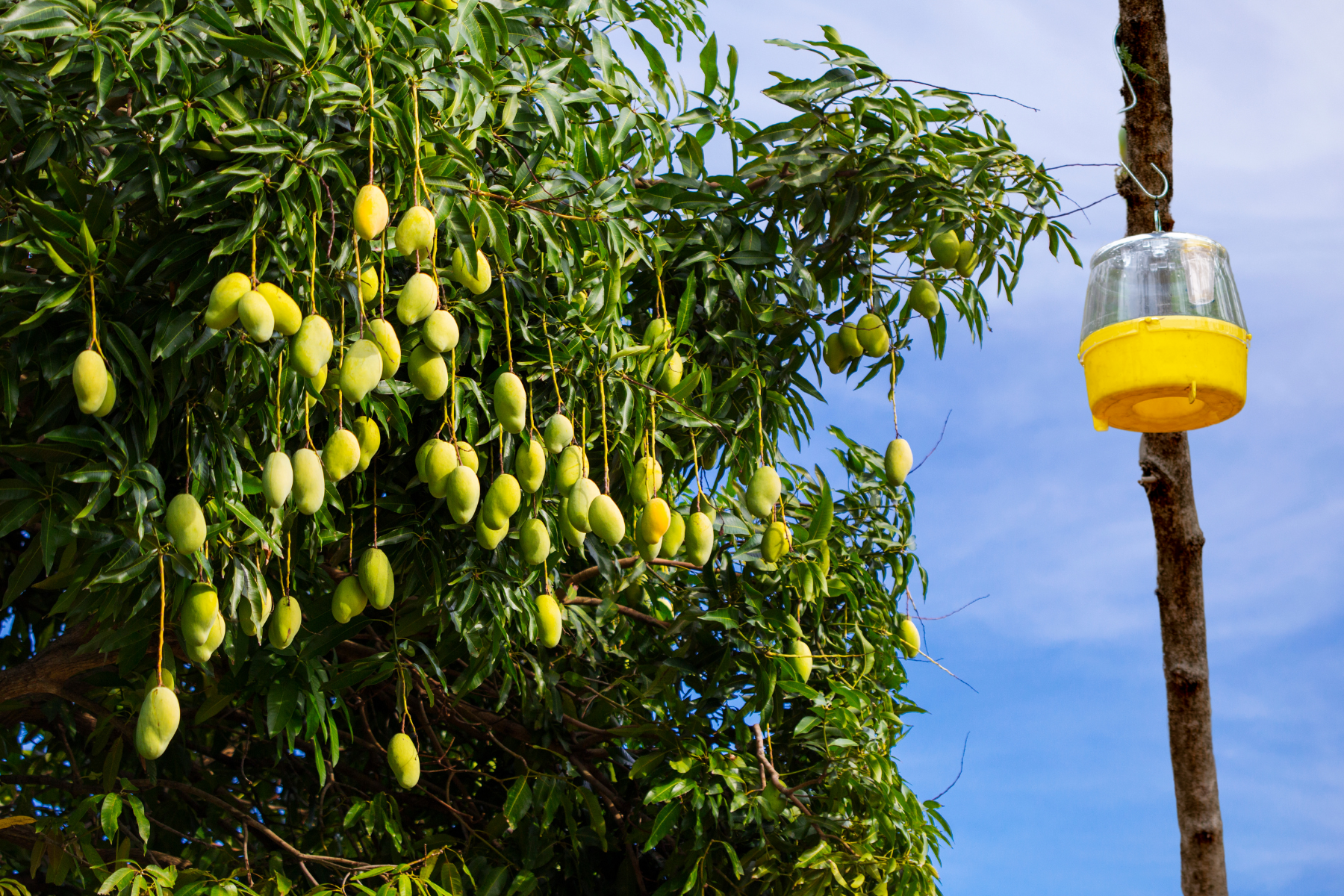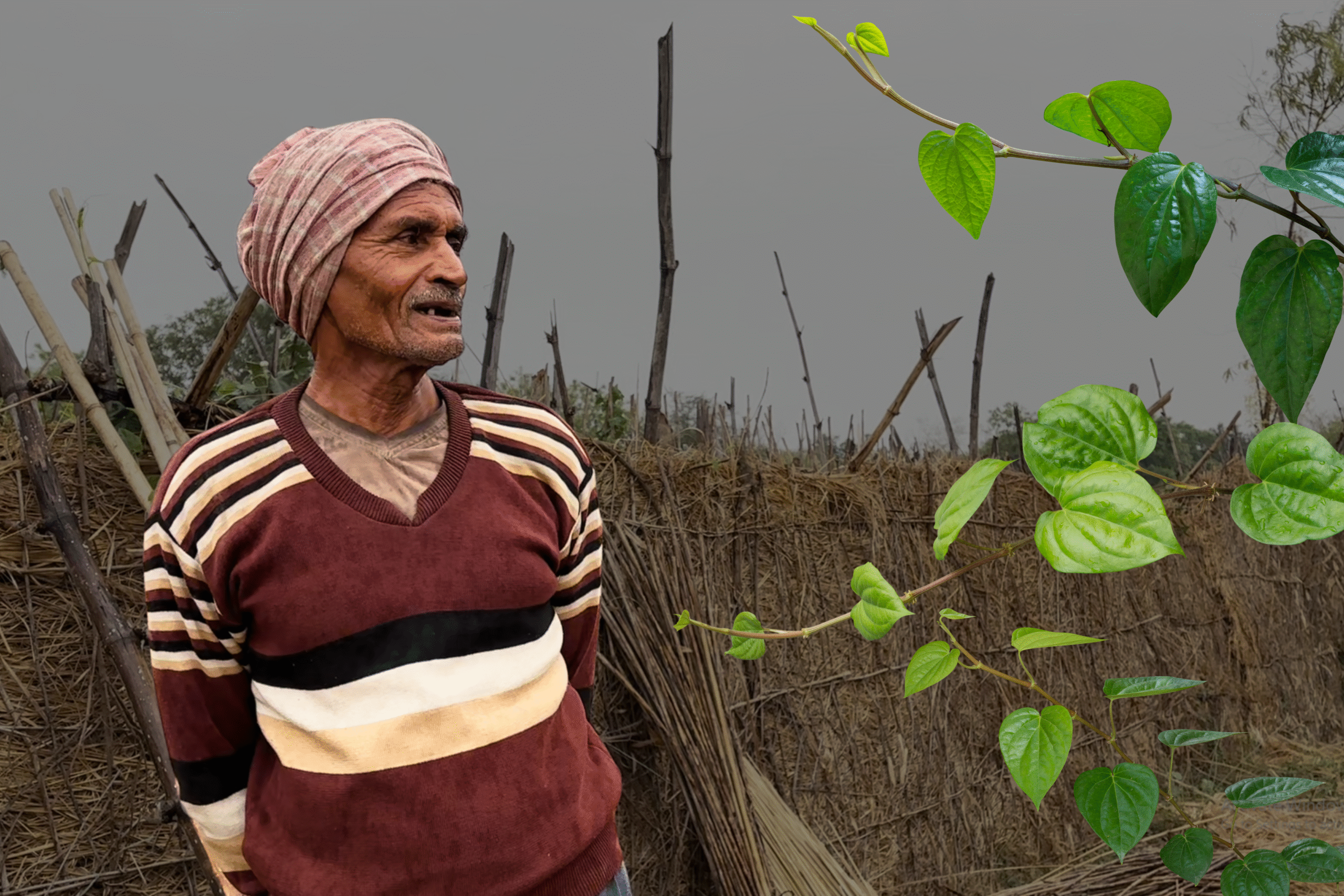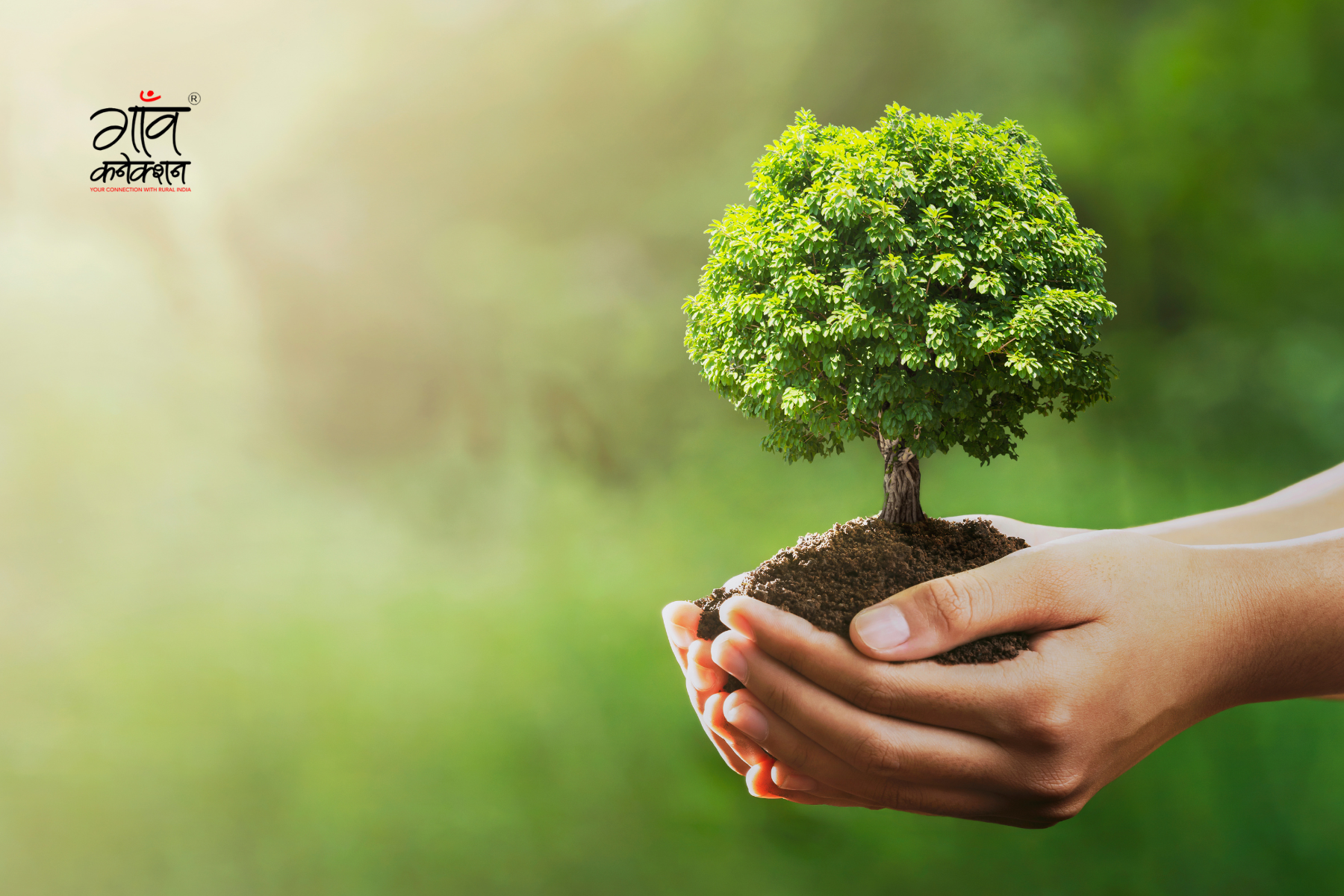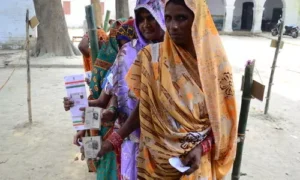Bankura, West Bengal
Draped in faded cotton sarees, their heads covered with gamcha, Sukumoni Hansda, Methri Murmu, Sraboni Tudu, Basonti Hansda, and Ramoni Hansda leave their homes every morning before sunrise.
It is still dark outside when these tribal women walk 10 kilometres from their villages of Ratanpur and Barokurpa to their workplace — Asna forest in Bankura district, located 170 kilometers from the state capital, Kolkata — where they spend the day collecting sal leaves, which they sell in the market to earn a living.
The women tread carefully as there are wild animals about, and just last year, their friend Nandini Ray, from Barokurpa village, who also made this trip to collect sal (Shorea robusta) leaves, died of a snake bite.
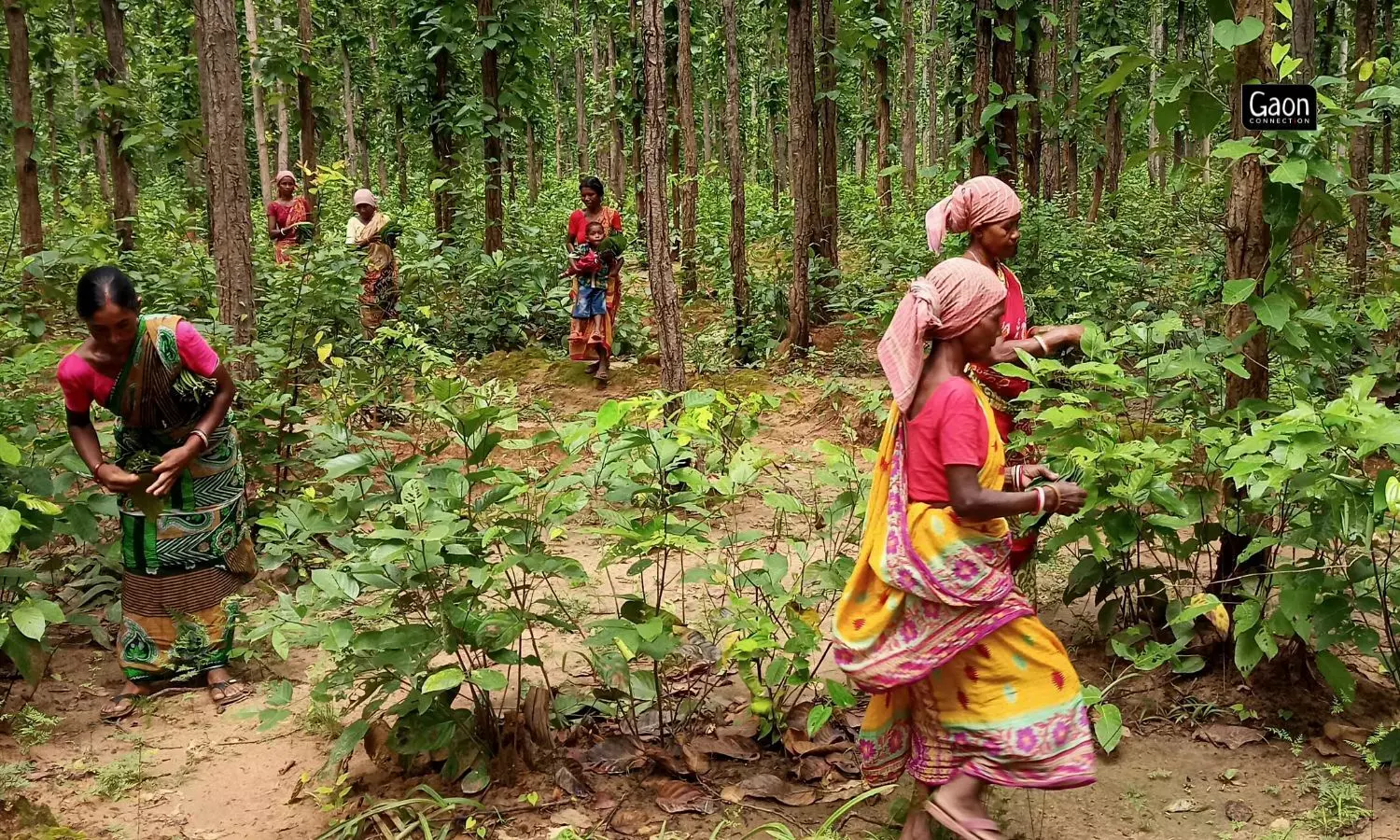
The women tread carefully as there are wild animals about, and just last year, their friend Nandini Ray, from Barokurpa village, who also made this trip to collect sal leaves, died of a snake bite.
Yet hundreds of tribal women in Onda block of Bankura district in West Bengal continue to enter the treacherous forests because collection and sale of sal leaves is the only source of livelihood for them, and the women have been doing it for generations. They earn Rs 5 for every 100 sal leaves they sell.
“We leave home at dawn and when we enter the forest it is still shrouded in darkness,” Sukomoni told Gaon Connection. “We have to collect at least a thousand sal leaves and a bundle of firewood each. If the collection falls short of this amount, spending a whole day in the forest would be in vain,” she added.
It takes them several hours to collect enough leaves and firewood and they are ready to leave the forests by 2 pm carrying sacks of the leaves on their heads.
“We cannot afford the bus fare and so we walk home carrying the load,” said Basonti, another sal leaves collector.
This is the practice in several parts of forested Bankura district. In South Bankura, dense forests cover vast expanses of Ranibandh, Raipur, Sarenga, Simlapal, Hirbandh, and Khatra blocks. The majority of the population here is tribal and reliant on forest produce for their livelihood.
In Muktator village that falls under Saharjora Gram Panchayat in Barjora block, younger women venture into the forest to gather leaves and branches. It is a perilous job as the area is known for its wild elephants, and in the last five years, seven people have lost their lives in elephant encounters when they went into the Muktator forest to collect leaves.
“But we have no alternative and we continue to go into the forests. We have to sustain ourselves,” said Sankari Bauri, whose mother-in-law Minoti was one of the women who died in the elephant encounter.
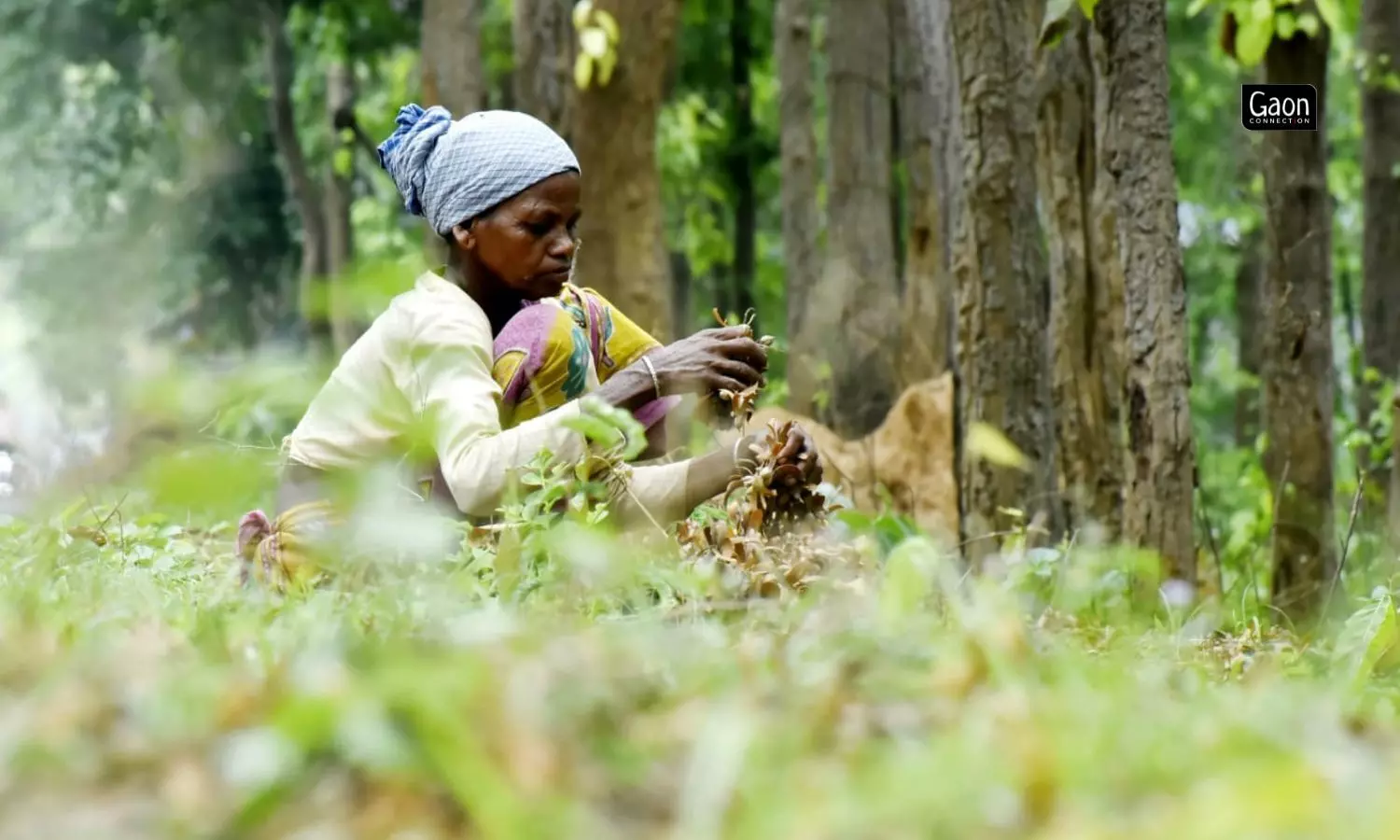
Collection of sal leaves is the practice in several parts of forested Bankura district.
The women said that forest guards and other officials also sometimes barred their entry into the forests, citing elephant movement. “How are we to live if we cannot go into the forests,” asked Rumpa Bauri, a tenth-grade student.
According to Umar Imam, the District Forest Officer (DFO) of Bankura North Division, “We advise women not to enter the forest for leaf collection due to safety concerns. Elephants migrate from the Dalma area and reside here. We are trying to manage their movements.”
Apart from women, even young girls are involved in the task of sale of sal leaves. Girls return from school and help the women who return from the forest. Meanwhile, elderly women in the villages spend hours pinning leaves together with stalks of the neem leaf and converting them into plates, which are sold in the local markets.
“We gather leaves from the forest and sell them at the local Ghoradhora and Kuilapal haat, and also sell them at local shops,” Kalpana Saren from Ranibandh, told Gaon Connection. She said the women faced untold risks in this work and the earnings were a pittance.
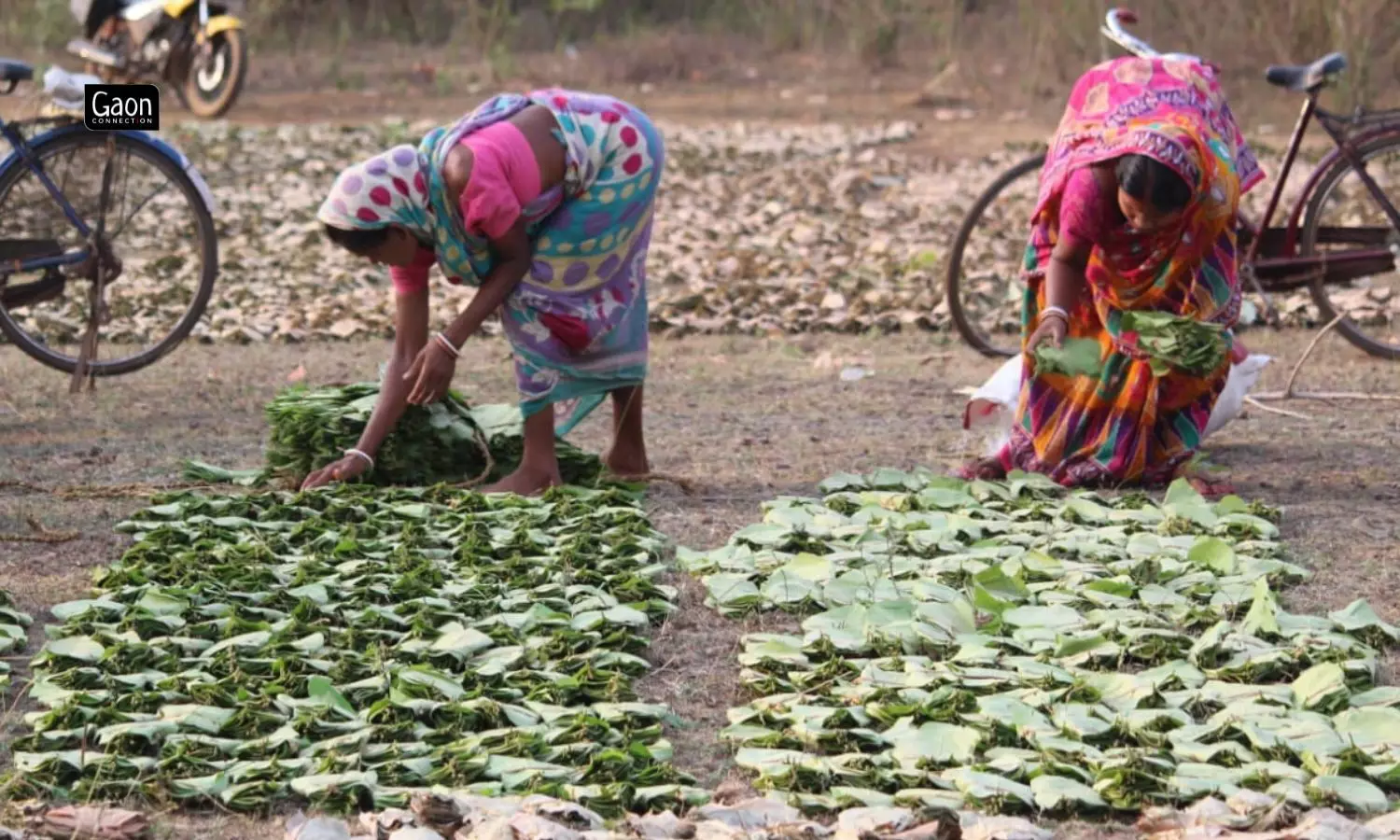
It is a perilous job as the area is known for its wild elephants, and in the last five years, seven people have lost their lives in elephant encounters when they went into the Muktator forest to collect leaves.
“We sell sal leaves to the local sweet shops and get Rs 5 for a bundle of 100 leaves,” Shyamoli Murmu, from Ranibandh, told Gaon Connection. Women use some of the firewood for themselves to cook food, while they sell the rest at Rs 50 a bundle to other poor families in the area, anganwadi centers, and for cooking school midday meals. A bundle has approximately 20 kilograms of firewood.
Some women have also started making bags and plates out of sal leaves for an additional income. Last year, women in Moula village in Ranibandh, Bankura made bags out of the leaves. They sold the bags for two rupees each.
“Each bag can carry up to five kilos of weight, the bags are eco-friendly and quite popular,” said Vabdana Sahis, who makes these sal bags. According to her, women could earn about Rs 200 a day if they sold the bags in the market.
Sal-leaf plates are still used to eat on in rural households. Those who make these plates sell them for Rs 30 for every 100 plates.
Aaroti and Kalyani Mahato from Keshra village in Ranibandh make little serving dishes out of the sal leaves and said they earn Rs 75 for every 1,000 dishes they make. These plates are used to serve food to guests at various social events.

elderly women in the villages spend hours pinning leaves together with stalks of the neem leaf and converting them into plates, which are sold in the local markets.
According to the women sal leaf collectors, for several years now, miscreants have been setting the forest on fire in the winter months. “The number of sal trees has decreased rapidly, and this is a crisis for us,” said Bandana Mandi from Sanenga’s Telijat village.
E Vijoy Kumar, DFO Bankura South Division, admitted that there had been incidents of forest burning. But the guards were alert and keeping a closer watch, he told Gaon Connection.
Many women from Bankura district, complained that money for work from Mahatma Gandhi National Rural Employment Guarantee Act (MGNREGA), locally called ‘Akso Diner Kaj’ (Hundred days of work), had ceased for two years, and that they had not even received the wages for the work they did in 2021.
According to sources from the District NREGA Cell, wages totalling 100 crore 68 lakh rupees are still owed in Bankura district. Additionally, mechanised farming has also reduced job opportunities in the area. Many men have migrated in search of jobs and the women who are left behind have no other option but to collect and sell the sal leaves.



